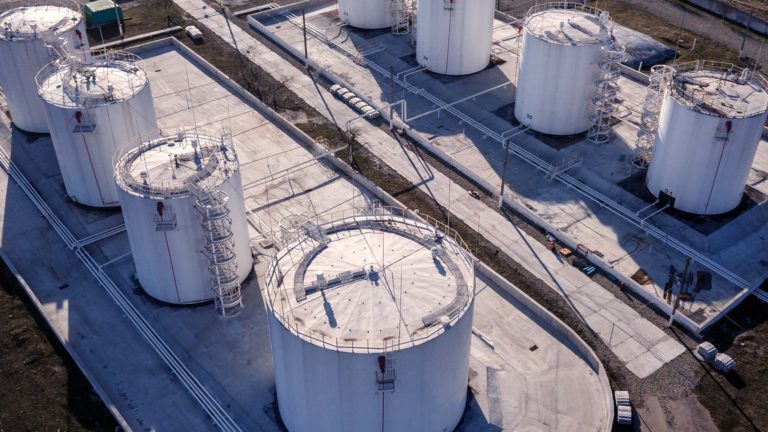What to Anticipate Throughout a Thorough Tank Welding Inspection
What to Anticipate Throughout a Thorough Tank Welding Inspection
Blog Article
The Vital Role of Tank Welding Examination in Ensuring Structural Honesty and Security Compliance in Industrial Applications
In the world of commercial applications, container welding inspection emerges as an essential element in securing architectural stability and making certain conformity with safety and security regulations. Making use of a mix of methods such as aesthetic analyses and progressed testing approaches, these evaluations serve to identify and alleviate possible problems before they intensify right into significant threats.
Relevance of Tank Welding Assessment

Ensuring conformity with sector requirements and guidelines is an additional substantial facet of container welding inspection. Regulatory bodies mandate stringent guidelines for the building and construction and upkeep of storage space containers, and comprehensive assessments assist companies stick to these demands. Non-compliance can result in extreme penalties, consisting of fines and shutdowns, better highlighting the requirement for extensive inspection methods.
Moreover, storage tank welding inspection plays a vital duty in preserving operational effectiveness. In summary, the relevance of storage tank welding inspection exists in its ability to guard public health and wellness, protect the setting, and guarantee conformity with regulative structures.
Secret Inspection Methods
Effective tank welding examination depends on a range of key strategies that make sure detailed evaluation of weld quality and structural honesty. Amongst one of the most common methods are visual examination, ultrasonic testing, radiographic testing, and magnetic fragment screening - Tank Welding Inspection. Each method uses one-of-a-kind advantages in evaluating various facets of the weld
Visual evaluation offers as the initial line of defense, allowing assessors to recognize surface area flaws, irregularities, or incongruities in the weld grain. Ultrasonic screening employs high-frequency acoustic waves to identify interior imperfections, such as splits or voids, providing an extensive evaluation of weld stability. This approach is specifically reliable in detecting issues that may not show up externally.
Radiographic testing utilizes X-rays or gamma rays to produce pictures of the welds, revealing interior gaps and supplying a long-term document for future recommendation. This method is very efficient for critical applications where the threat of failure have to be reduced.
Lastly, magnetic particle testing is used to recognize surface area and near-surface flaws in ferromagnetic materials. By applying magnetic fields and great iron fragments, examiners can determine gaps that might jeopardize the structural stability of the tank. With each other, these methods develop a robust structure for making certain top notch welds in commercial applications.
Compliance With Safety Requirements

Normal inspections play a pivotal role in guaranteeing compliance by determining prospective failings or inconsistencies from prescribed standards. Assessors are trained to review weld high quality, validate material requirements, and evaluate the total structural honesty of storage tanks. Their experience is vital in ensuring that welding procedures fulfill the needed safety more helpful hints requirements.
Additionally, compliance with security standards not only protects workers yet additionally safeguards the environment from possible threats such as leakages or tragic failures. Organizations that focus on security compliance are much better positioned to minimize threats, improve operational efficiency, and promote a society of safety and security within their workforce. In summary, preserving strenuous compliance with safety requirements is indispensable for the successful operation of storage tank welding tasks in commercial settings.
Benefits of Routine Assessments
Normal inspections are essential to preserving the architectural honesty and safety and security of welded tanks. These evaluations supply an organized strategy to recognizing potential defects or weaknesses in the welds, guaranteeing that any type of problems are attended to prior to they rise right into substantial failings. By performing normal analyses, companies can identify deterioration, exhaustion, and various other kinds of damage that might endanger container efficiency.
Additionally, constant assessments contribute to compliance with sector policies and criteria. Adhering to these guidelines not just minimizes lawful read this article dangers however likewise enhances the organization's online reputation for safety and security and integrity. Routine evaluations foster a proactive safety and security society, motivating workers to recognize and focus on the value of devices integrity.

Study and Real-World Applications
Situation researches and real-world applications illustrate the concrete influence of reliable storage tank welding evaluation practices. Complying More Bonuses with the execution of strenuous welding assessment procedures, including visual and ultrasonic testing, the center recognized vital imperfections in weld seams that might have led to disastrous failings.
Similarly, a water treatment plant carried out a comprehensive evaluation program for its container welding procedures - Tank Welding Inspection. By incorporating non-destructive testing techniques, the plant had the ability to detect early indications of rust and exhaustion in weld joints. This prompt intervention extended the life expectancy of the storage tanks and made sure conformity with safety and security regulations, thus securing public health and wellness
These instance researches underscore the importance of regular and methodical storage tank welding assessments. By focusing on these methods, sectors can minimize threats, boost architectural honesty, and make certain conformity with security standards, eventually bring about boosted operational effectiveness and lowered responsibilities.

Conclusion
Finally, container welding inspection is a vital part of keeping architectural stability and safety in industrial applications. Using numerous assessment methods ensures very early discovery of prospective defects, thereby protecting against tragic failings. Adherence to safety standards better improves operational integrity and conformity with regulatory needs. Ultimately, normal assessments not only shield public health and wellness and the environment however additionally contribute to the longevity and efficiency of critical properties, highlighting the vital function of this practice in commercial operations.
Report this page